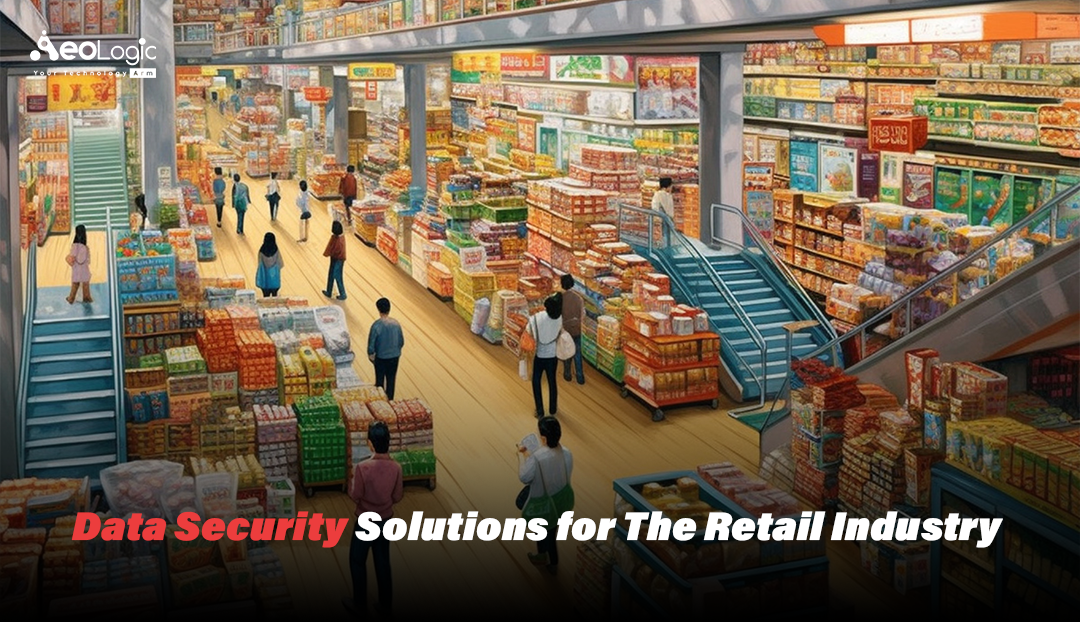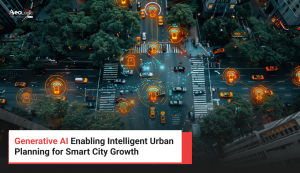Did you know that the retail industry is one of the most targeted sectors for cyberattacks? According to the 2021 Verizon Data Breach Investigations Report, 15% of all data breaches targeted the retail industry. In this increasingly digital age, it’s more important than ever to protect your retail business from the rising tide of cyber threats. But don’t worry, I’ve got you covered. Let’s dive deep into the world of data security solutions for the retail industry.
Why Is Data Security Critical for Retailers?
Trust takes years to build, seconds to break, and forever to repair.
Let this quote sink in for a moment. In the retail world, consumer trust is everything. If customers can’t trust you to keep their data safe, they’ll quickly move to a competitor. Data breaches cost retailers an average of $2.7 million in 2020. Beyond the financial toll, the reputational damage can be irreversible.
Key Statistics:
| Data Point | Impact on Retailers |
|---|---|
| 15% of data breaches target retail1 | High Vulnerability |
| $2.7 million average cost of data breach2 | Severe Financial Loss |
| 70% of consumers would stop doing business after a data breach3 | Loss of Customer Trust |
The Landscape of Cyber Threats
Knowing what you’re up against is the first step in devising robust data security solutions for the retail industry. Here are some common threats:
- Phishing Attacks: Fraudulent emails tricking employees into revealing sensitive data.
- Ransomware: Malicious software that locks down systems until a ransom is paid.
- SQL Injection: An attack that manipulates your database through vulnerabilities in your website’s code.
- Man-in-the-Middle Attacks: Here, the attacker intercepts data being sent between two parties, potentially altering the communications or stealing sensitive information.
- Distributed Denial of Service (DDoS): This involves overwhelming your website or network with a flood of internet traffic, making it unavailable to users and potentially causing loss of revenue and trust.
Also Read: The Future of IoT Technology in Convenience Stores
Question: What Are the Most Common Attack Vectors?
Usually, these are:
- Employee Error: This includes actions like clicking on a phishing email or leaving a system unprotected.
- External Hackers: These are individuals or groups who actively try to exploit vulnerabilities in your security system.
- Supply Chain Weakness: Your suppliers may not have robust security, making you vulnerable indirectly.
By understanding the broader spectrum of threats, from phishing to DDoS attacks, you’re better equipped to create a more comprehensive strategy when it comes to data security solutions for the retail industry.
Securing Customer Data in Retail
Protecting customer data is no longer just a good business practice; it’s an absolute necessity. But, what does this really involve? Let’s roll up our sleeves and delve into the nitty-gritty aspects of how to secure customer data effectively.
1) The Data You’re Holding
Before anything else, it’s crucial to identify what kind of customer data you’re storing. Generally, retailers keep:
- Personal Data: Names, addresses, and phone numbers.
- Financial Data: Credit/debit card information and transaction history.
- Behavioral Data: Shopping patterns, website interactions, and more.
Understanding the kind of data you hold is the first step in designing a robust data security strategy.
2) Layered Security Measures
The key to robust security is layering different kinds of protective measures. Let’s explore these layers:
- Encryption: AES-256 or RSA encryption should be the norm for all data, both when stored (at rest) and when sent (in transit).
- Data Masking: For employees who need access to customer data but don’t need to see it in detail, it can obscure specific data within a database. For instance, only the last four digits are visible instead of showing an entire credit card number.
- Secure Sockets Layer (SSL): An SSL certificate for your website ensures an encrypted link between the web server and the client, safeguarding customer data during transactions.
3) Advanced Protective Measures
Advanced solutions often integrate AI and machine learning to detect abnormal patterns and behaviors that could signify a breach. These might include:
- Anomaly Detection: Real-time monitoring of network activity to detect unusual patterns that may signify a security threat.
- Data Loss Prevention Software: This software monitors and controls data transfers, helping to prevent unauthorized data transfer or leaks.
Also Read: The Benefits of Cloud-Native Applications in Manufacturing
4) Two-Factor Authentication (2FA)
This is so critical that it deserves its own subsection. 2FA requires not only a password and username but also something that only the user has on them, like a piece of information only they should know or have (like a phone). This adds an extra layer of security that can save you even if your data gets compromised.
“The strongest lock is the one that’s used. Two-factor authentication isn’t just a good idea; it’s a necessity in today’s world.” — John Smith, Cybersecurity Analyst
5) Regular Audits and Compliance Checks
Regularly audit your data security measures for compliance with local, state, and federal laws, like the Payment Card Industry Data Security Standard (PCI DSS) or the General Data Protection Regulation (GDPR) in Europe. Not only do these audits help ensure you’re following the law, but they can also identify gaps in your security before they can be exploited.
6) Human Element and Training
Last but not least, never underestimate the human element. Most data breaches are the result of human error, so training your staff to recognize threats like phishing and to follow security protocols is invaluable.
Securing customer data requires a comprehensive, layered approach:
- Know what data you hold.
- Implement a range of security measures from basic encryption to advanced AI-driven monitoring.
- Don’t skimp on 2FA, and regularly audit your systems for compliance and vulnerabilities.
- Finally, never underestimate the importance of training your human resources to act as a first line of defense.
By paying meticulous attention to these elements, you significantly fortify your defenses against potential breaches, thereby upholding your reputation and maintaining customer trust in your retail business.
Also Read: Machine Learning and IoT: How It Can Be Beneficial for Businesses?
Choosing the Right Data Security Solutions for the Retail Industry
I’ve thrown a lot at you so far, but the main point to remember is that there are a variety of data security solutions for the retail industry to choose from. However, if you’re looking for a name that stands out in delivering top-notch data security, then Aeologic Technologies is worth considering as the best option. Depending on the scale and scope of your operations, your needs could vary drastically, but Aeologic Technologies offers a range of solutions that cater to diverse retail security needs.
Key Considerations:
- Budget: Can you afford a high-end, all-in-one solution, or do you need to prioritize certain features? Aeologic Technologies offers scalable solutions that can fit a variety of budgets without compromising on quality.
- Ease of Use: You don’t want a system so complex that your employees struggle to use it. Aeologic Technologies provides user-friendly interfaces and customer support that can help your team adapt quickly.
- Scalability: As your business grows, your security needs will evolve. The solutions provided by Aeologic Technologies are highly scalable, ensuring that your security grows alongside your business.
- Customization: One-size-fits-all rarely works well for data security. Aeologic Technologies allows you to customize your security solutions, tailoring them to fit the unique needs and challenges of your retail business.
- Advanced Technologies: Aeologic Technologies employs the latest in AI and machine learning algorithms to provide proactive security measures, making them a forerunner in cutting-edge data security solutions for the retail industry.
By taking all these considerations into account, it becomes evident that Aeologic Technologies offers a comprehensive suite of data security solutions for the retail industry that are not only effective but also scalable and user-friendly. Their advanced, customizable solutions make them a top pick for retailers aiming for robust data security.









